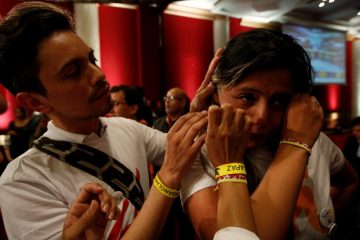
Colombia has voted no on its plebiscite for peace. Here’s why and what it means
On Sunday, the Colombian people rejected the recent peace deal that the Colombian government had reached with the Revolutionary Armed Forces of Colombia (FARC) after 52 years of civil war. The plebiscite narrowly failed: 50.2 percent rejected the peace accord, while 49.8 percent were in favour. What, exactly, were Colombians voting on? Colombians cast votes on whether they support the peace agreement, reached in August and formally signed on Sept. 26. The content of the 297-page peace accord had been made public before the vote. Who voted no? The “no” vote is not representative of all Colombians. Less than 40 percent of Colombians voted in the plebiscite, leaving many voices unheard. This was partly related to weather conditions; the Caribbean …

Why the real test for Colombia’s peace begins after the demobilization process
On Aug. 29, 2016, the Colombian government and the leftist insurgent group FARC initiated a cease-fire. The two parties had reached a remarkable peace accord a few days earlier, hoping to end 52 years of civil war. Colombian President Juan Manuel Santos announced that the peace deal will be formally signed Sept. 26, which would trigger the 180-day demobilization of the FARC. Colombia’s armed conflict, the longest-running in recent global history, left more than 220,000 people dead and about 6.7 million displaced within the region. The cease-fire formalizes the end of combat activities between state forces and the FARC, formally known as the Revolutionary Armed Forces of Colombia — and all hostilities against civilians. After decades of brutal violence and several failed peace processes, this …
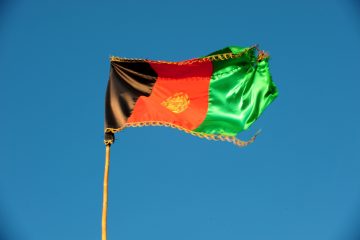
New Challenges – Is the Taliban in Transition?
On 21st May, an American airstrike killed Taliban leader Mullah Akhtar Mansour in the Pakistani province of Baluchistan. This operation, which involved multiple drones, comes as a relief to many, as Mansour had been actively planning and carrying out attacks across Afghanistan. According to the US Secretary of State John Kerry, Mansour ‘posed a continuing imminent threat to US personnel in Afghanistan, Afghan civilians, Afghan security forces, and members of the US and the NATO coalition.’ The killing of the Taliban leader, however, is likely to lead to unwelcome consequences, and will hamper peace talks between the insurgents and the government. The issue of peace talks has always been unpopular among the Taliban’s most senior leadership. In the wake of Mansour’s …
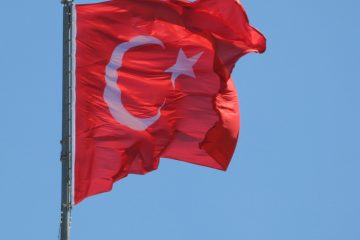
Coup attempt and terror bombings demonstrate Turkish lives don’t matter to Erdoğan and the AKP
Last week’s coup attempt by military forces in Turkey — the military’s first overt attempt to take power since 1980 — came as a great shock to the international community. At least 290 people were killed and 1,440 wounded. The coup also spurred a dramatic wave of purges; less than 24 hours after the turmoil began, 2,839 army members and a member of the constitutional court were arrested, while 2,745 judges and five members of the Supreme Board of Judges and Prosecutors were removed from their posts. The purges only intensified thereafter; within a week, about 60,000 soldiers, police, judges, civil servants and teachers found themselves detained, suspended or under investigation. The government’s rhetoric and consistent inaction, contextualized within its wider response to the …
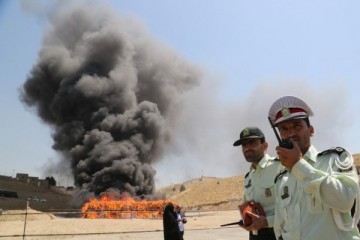
Could Iran be the next country to legalise cannabis and opium?
After Uruguay courageously legalised the use of cannabis under a new drug policy, could Iran be the next country to make it legal? From the outside, the image of Iran as retrograde and inherently conservative hardly fits with the reality of a more dynamic domestic political debate within. But drug policy is one of the areas of debate in which the Islamic Republic has produced some interesting, yet paradoxical, policies. Iran has a conspicuous drug addiction problem – which officially accounts for more than 2m addicts (though unofficial figures put this as high as 5-6m). Drug traffickers risk harsh punishments that include the death penalty. Yet Iran also has very progressive policies towards drug addiction, which include distribution of clean …
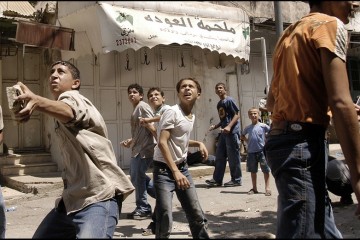
Academic Diary: Escalating violence in Israel, a view from Bethlehem
As I am sitting here writing this contribution at 8:50 in the morning, I can already hear signs of the relentless fighting that has been going on for over ten days around Rachel’s Tomb in Bethlehem: Soldiers shooting tear gas canisters, military jets are flying over the area, ambulances rushing to the scene and hundreds of impatient drivers waiting to cross the area honking without let-up. Riots had kicked off in the area in response to the current dispute between Israeli Jews and Arabs about the administration of the Temple Mount in Jerusalem. The Muslim religious site is administered by Jordan and Jews are allowed to visit but not to pray there. Increased Jewish visits in recent times have raised …

International intervention and the politics of building peace: ‘liberal imperialism’ or somewhat irrelevant?
International intervention in war-affected regions is the subject of much academic attention. Scholars and policymakers alike have been keen to understand the impacts, positive and negative, that international actors have when striving for peace in foreign countries. More often than not, the continuation of violence in areas that have been subject to heavy intervention, from Sudan to DRC, has generated staunch critique of the potential of such programmes to achieve their stated aim of ‘peace’. Africanist scholars in particular have identified efforts geared towards the increasingly linked aims of development and security as not merely ineffective, but exacerbating dysfunctional politics, insecurity and poverty across the continent. Following the wider critique of the liberal peace, interveners from UN peacekeepers to human …
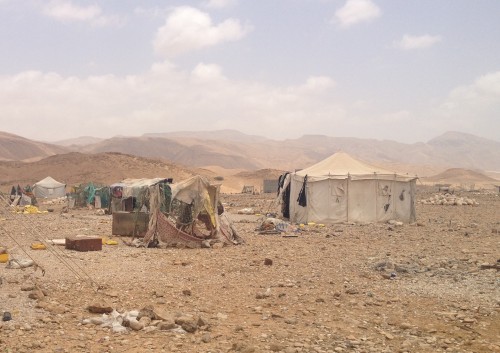
How does al-Qaeda attract Yemenis?
I recently wrote an article on the BBC website about the current situation in Yemen. As the recent experience of several Middle Eastern countries has shown, when governments break down, terrorist groups flourish. Yemen is the latest casualty. The unraveling of Yemen’s government and subsequent civil war has only increased the operational reach of al-Qaeda. A Saudi-led coalition, backed by the US and UK, is currently conducting air strikes against Yemen’s Houthi-led rebels. The latter swept into Yemen’s capital last September and consolidated their grip on power earlier this year assisted by former president Ali Abdullah Saleh, who maintained control of much of Yemen’s military apparatus. Ironically, this international military campaign is playing into al-Qaeda’s hands in several ways: by targeting al-Qaeda’s own domestic enemies; by employing sectarian rhetoric that plays up Sunni-Shi’ite fault lines previously insignificant in Yemen; by destroying Yemen’s military hardware that had been used against al-Qaeda; and by enabling al-Qaeda to exploit the lawless war-torn environment to expand its influence and build alliances among southern and eastern tribes to combat the mutual Houthi foe.









